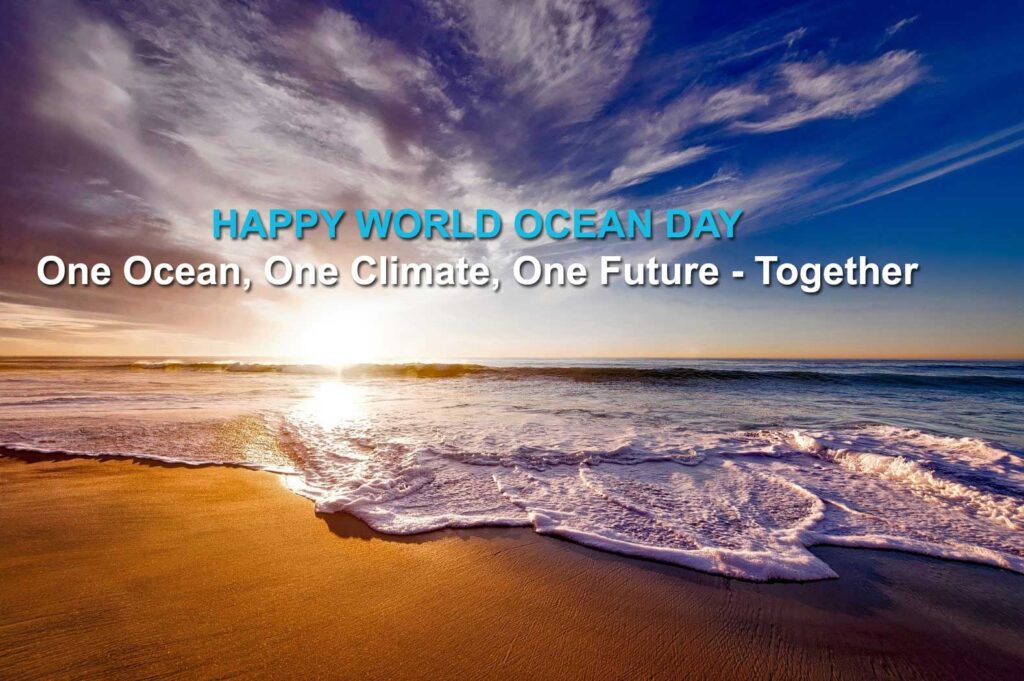
“The Ocean: Life and Livelihoods” is the theme for World Oceans Day 2021, as well as a declaration of intentions that launches a decade of challenges to get the Sustainable Development Goal 14, “Conserve and sustainably use the oceans, seas and marine resources”, by 2030. The ocean covers over 70% of the planet. It is our life source, supporting humanity’s sustenance and that of every other organism on earth.
The ocean produces at least 50% of the planet’s oxygen, it is home to most of earth’s biodiversity, and is the main source of protein for more than a billion people around the world. Not to mention, the ocean is key to our economy with an estimated 40 million people being employed by ocean-based industries by 2030.
Even though all its benefits, the ocean is now in need of support.
“The Ocean: Life and Livelihoods” is the theme for World Oceans Day 2021, as well as a declaration of intentions that launches a decade of challenges to get the Sustainable Development Goal 14, “Conserve and sustainably use the oceans, seas and marine resources”, by 2030.

World Oceans Day reminds every one of the major role the oceans have in everyday life. They are the lungs of our Planet and a major source of food and medicine and a critical part of the biosphere.
The purpose of the Day is to inform the public of the impact of human actions on the ocean, develop a worldwide movement of citizens for the ocean, and mobilize and unite the world’s population on a project for the sustainable management of the world’s oceans.
The second fully virtual celebration of United Nations World Oceans Day, on 8 June 2021, will highlight the theme of The Ocean: Life and Livelihoods.
Spirituality of the Sea
SIR ALISTER HARDY was one of the leading marine biologists of the 20th century. Shortly before his death, he gave a personal insight into what had motivated him since his youth.
“Just occasionally,” he recalled, “I became so overcome by the beauty of the natural scene that for a moment or two I fell to my knees in prayer.” This led Hardy not only to a career in biology, but to pledge that, at some point, he would turn his mind to studying religious experience.
After retiring as Professor of Zoology at the University of Oxford, Hardy fulfilled a lifelong ambition by founding the Religious Experience Research Unit at Manchester College, Oxford, in 1969.
It was here that he embarked on a project for which he received the Templeton Prize for progress in religion, just days before his death in 1985. In his acceptance speech, which he was too unwell to deliver in person, Hardy made public what lay behind his lifelong fascination with the natural world and religious experience.
You can listen to the Spirituality of the Sea on Soul Search, by Dr Meredith Lake.
We head to Sydney’s famous Bondi Beach, to meet the ‘Swim Sisters’— a group that helps Muslim women and their friends get stuck into ocean swimming.
We also hear from Rev Dr Seforosa Carroll, a Pacific Islander whose ministry has taken shape by the beach. She explains coconut theology, and the challenges climate change pose to Fiji and Oceania.
And we learn how Australia is a place shaped by the sea, with Alex Gaffikin, head of Interpretation and Design at the Australian National Maritime Museum.

![]()

